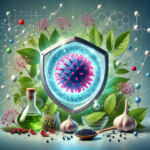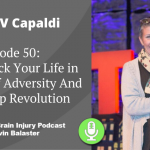How Digestion Affects The Brain: Food for Thought
After my brain injury, my aunt, a nurse practitioner who recently started her own practice in functional medicine in Houston (www.houstonbioidentical.com), told colleagues of hers that her nephew had a serious brain injury, and asked them who I should see. One of her colleagues said “if it were my child I know exactly who I would see, but he lives all the way in Austin, TX.” PERFECT! I live in Austin!
Doctor Thomas Culleton is not your conventional neurologist (See last post: Little Neuro). He is well versed in cutting edge developments within the field of neuroscience and it seemed like he could help my brain to rewire itself where I was discharged from the neurology department in the hospital; and my family and I were told by the hospital staff that “there is nothing more that the neurology department can do.” When I arrived in Dr. Culleton’s office for the first time, he asked me to touch my nose and then touch a target with my left hand. I would almost poke my eye when attempting to touch my nose, and wave my finger like that of a music director conducting a symphony, when trying to touch the target. This uncoordinated movement is called an intention tremor. My hand does not shake at rest, but during an activity like picking up a glass, I overshoot or undershoot my target and my arm and hand shake from side to side as I move. I have ataxia which I have described in an earlier post (Hailing a Taxi…A). This intention tremor is a symptom of a cerebellar disorder in my brain.
The next thing he had me do was to stand on a small piece of foam-like material to challenge my balance. I could not stand on this for even a second before I would lose my balance, fall off of it, and be caught by him or my mother. The next test was on the solid ground of his office, where he asked me to do a seemingly even simpler task. He asked me to simply stand up and close my eyes while standing. I knew that I had balancing issues, but I had also experienced through my yoga practice that I couldn’t even do this task. I instantly lost my balance with my eyes closed. The extent in which balance is influenced by vision was truly astonishing to me and it felt awful that I relied on my vision so much in order to balance. Furthermore, my vision was double (Diplopia) so I couldn’t even rely on my natural vision without corrective lenses. (See earlier post about yoga: Hot Power Fusion)
I was then told about the relationship between the gut and the brain, and how and why it is hugely important for anyone with any psychiatric problem, brain disease, or brain injury. Therefore, it was and is especially important to my well-being. This relationship is known as “the gut-brain axis.” The gut is often referred to as the second brain or the enteric nervous system because there is a complete network of neurons within the gut as well as many neurotransmitters. In fact, serotonin (a well-known neurotransmitter in the brain that is said to control everything from appetite, sleep, memory and learning, temperature regulation, mood, behavior, cardiovascular function, muscle contraction, endocrine regulation, and depression) is found in two main locations of the human body: the brain and the gut. Not only is serotonin found in the gut, but about 90% of the body’s total serotonin is found in the gut! (http://en.wikipedia.org/wiki/Serotonin)
I had a blood test ordered at this point in my recovery in order to see the levels of macronutrients, hormones, a thyroid panel, and other compounds in my blood. The test had several surprises including high T3 uptake levels which might indicate high testosterone levels, but the most concerning results showed that my protein levels were low. This was very surprising to me and my mother because I was eating meat with every meal, and having a protein shake daily. This meant that I was not absorbing the protein that I was eating. Dr. Culleton explained a condition that is very common with brain injuries or people who have been hospitalized and put on multiple medications and antibiotics (and I had endured both). This condition is called “leaky gut” or “intestinal permeability”. (http://www.anapsid.org/cnd/diffdx/leakygut2.html)
Leaky gut syndrome is a condition caused by increased permeability of the intestinal wall resulting in the inability to absorb many nutrients. The food passes from the stomach to the small intestine as a partially digested paste called chyme. Once in the small intestine, bile and other enzymes are added to the mixture to break down the food into small nutrients that can pass through the tight junctions in the intestinal wall into the blood to then be transported to the rest of the body. With leaky gut, whole food particles pass through the tight junctions of the intestinal wall and into the portal vein where they enter the bloodstream BEFORE being fully broken down or digested. Because these food particles are undigested, and the body doesn’t recognize them as nutrients, an immune response occurs the way it would occur if you had a splinter or any other foreign object in your bloodstream. This immune defense causes inflammatory cytokines, which are intracellular communicators within blood cells. They tell natural killer cells (I like to call them natural born killers) to attack the foreign substance in the blood. (http://chriskresser.com/the-healthy-skeptic-podcast-episode-9) I think of cytokines as your “neighborhood watch” who patrol the neighborhood (your body) in their cars (blood cells). When they see someone stealing from the neighborhood (foreign body), these cytokines then hold the perpetrator so he doesn’t get away (inflame the area) and call the police (natural killer cells) to arrest the invader and take him or her away. Does that make sense?
Basically, I was not digesting my protein, but instead it was invading my bloodstream undigested and being attacked by my immune system. The proteins were not being used by my brain or body, but instead, were causing an immune response which created inflammation in my gut. My body was not getting the building materials for my brain that it desperately needed. Because these cytokines are much smaller than a cell, and are released into the blood, they are able to cross the blood-brain barrier, enter the brain, and activate microglial cells (immune cells of the brain) which create inflammation in the brain (http://www.karger.com/Article/Abstract/97202). Other antibodies are too big to cross the blood-brain barrier, so microglial cells do the job and they are very sensitive in order to protect this vital organ that is the brain. Thus, it is the microglial cells that trigger the inflammation of the brain (and for important protective reasons) when cytokines are present. When the brain becomes inflamed, brain activity reduces, including the output of the brain to the digestive system. This decrease in communication causes more digestive problems which leads to more inflammation in the gut, and then more cytokines in the bloodstream to enter the brain, causing more inflammation in the brain… It is a vicious cycle.
This inflammation is not the underlying problem, however. The inflammation is the body’s method of protection, and it is absolutely necessary. Is the underlying problem the substance that caused the inflammation: Protein? After all, protein is the invader that my blood attacked. But the body needs protein, so why is it being attacked? The underlying problem can be traced back until a loop is discovered. Like a kid who asks “why?” a hundred times… If this topic was subject to a child’s “why” game, a loop would present itself:
“The patient is not digesting protein.”
“Why?”
“Because the intestinal wall is permeable.”
“Why?”
“Because the patient’s brain is not communicating effectively with her gut.”
“Why?”
“Because the brain is inflamed”
“Why?”
“Because the intestinal wall is permeable.” (And a loop is found.)
Thus, in this case, the way to break the loop is to focus on the intestinal wall’s permeability. I applaud a 4 year old for asking these questions and pissing off their parents. I would like to think that they are seeking the sources of problems, but in reality, they may just be trying to annoy. Leaky gut is a very common condition because it exacerbates itself, but it is especially common with a brain injury. It is additionally caused by, or the result of, psychiatric disorders like chronic fatigue, depression, and anxiety to memory problems and brain fog (which is certainly how I felt), or any condition, like these, that decreases brain output. (http://www.ncbi.nlm.nih.gov/pmc/articles/PMC1073266/)
I did not understand this complex concept until only recently, but this explains why my blood work showed that I had low protein despite the large amount of protein in my diet. I have spent countless hours researching both the digestive system and the brain because they seem to be absolutely necessary for all animals and the connection seems vital. The bottom line is “if you wanna be smarter, eat smart.” (What is “smart” eating? Because of my own frustration with being told that I had to stop eating certain foods, as well as my experience discussing food with others, I have decided to leave out specifics in this post. Food is VERY personal and I have found that giving unsolicited information, even about my own experience with specific foods, rarely ends well. Telling someone that they are eating the wrong food elicits a response similar to telling someone that they are worshipping the wrong god. I wrote about this in a later post: Biology, Evolution, and The Brain) This condition, however, is just beginning to become formally recognized in Western medicine. (http://www.ncbi.nlm.nih.gov/pubmed/22109896)
To repair my own gut, I chose to tough it out and do “the full Monty” by following an elimination diet. An elimination diet removes ALL POSSIBLE inflammatories from the diet for a month. Possible inflammatories include all grains, milk, eggs, nuts, legumes (beans), shellfish, certain vegetables, soy, coffee, alcohol, or any known food allergen out there. It didn’t leave much… As limiting as this sounds, however, I had endured four months while I was in the hospital where I could not eat ANYTHING, was extremely hungry, and had a feeding tube that trickled liquid crap into my stomach, so I felt that I could handle it. Even though I felt extremely deprived yet again, Dr. Culleton also told me to eat every two hours. “Oh no!!!!” I said facetiously when I was told the terms of this diet “I HAVE to EAT!!!! And every two hours!!! TORTURE!” Dr. Culleton emphasized the importance of eating within the first 1/2 hour of awakening, and also put me on a “gut repair” protocol which included food based products to repair the lining of my intestinal wall as well as other natural formulas designed to improve my brain function.
After this month of familiar deprivation, my mind began feeling clearer and I could begin reintroducing foods in one at a time and see how I reacted. This diet showed me, quite obviously, which foods make me feel good or bad because the inflammation was eliminated so I would notice, whereas I couldn’t notice a change if I was already inflamed. Again, how can one tell that it is raining when they are under water? Food is what the brain and body needs for energy and growth, and if digestion is not optimal, the body is not optimal. The cells that one is made of — are made of, and fueled by, the nutrients that they ingest. The old saying, “you are what you eat”, holds a lot of truth, but its not quite that simple. You can be what you eat if your body is able to absorb the nutrients in the food that you ingest. “You are the nutrients in the food you eat that you are able to absorb” is more like it.
There is no such thing as a magic pill. Certainly not for a brain injury. I think about the fact that humans have lived on this earth for hundreds of thousands of years and they did not have beta blockers, SSRIs, amphetamines, or even ibuprofen. They had food. Pain killers block pain receptors, anti anxiety drugs block beta receptors, SSRIs block serotonin in from being reabsorbed so that serotonin receptors can continue using it, amphetamines increase the concentration of dopamine between neurons in the synapse etc… Can you imagine a caveman all spun out on amphetamines and essentially hacking his or her brain chemistry to block or inhibit one receptor and excite another? Neither can I. I do imagine humans fighting for their survival, eating, and using what was available medicinally to propagate the human race. This is just a little food for thought (literally): how nutrition affects the brain. As Hippocrates said 2,500 years ago: “Let food be thy medicine. And thy medicine be thy food.”



